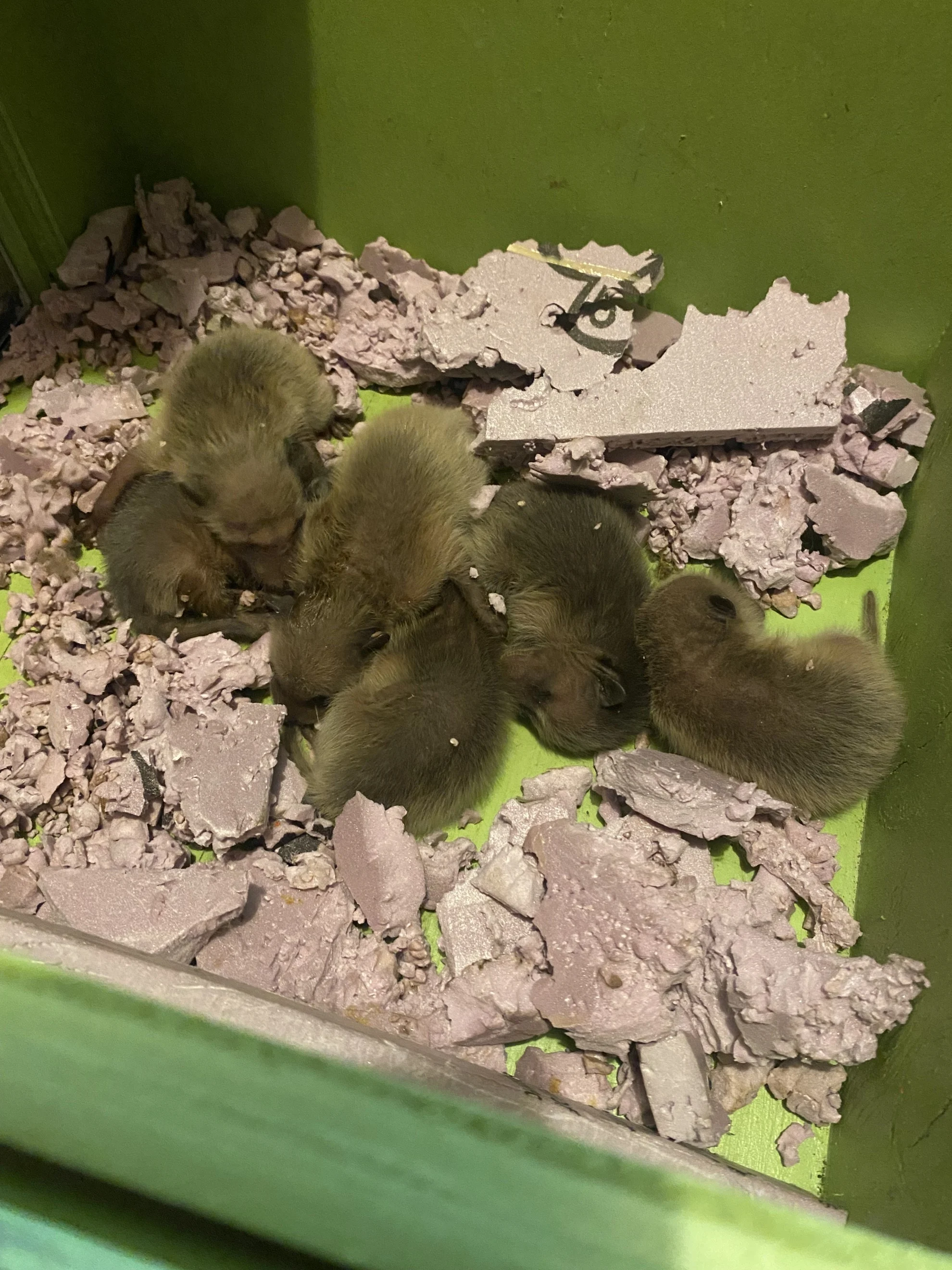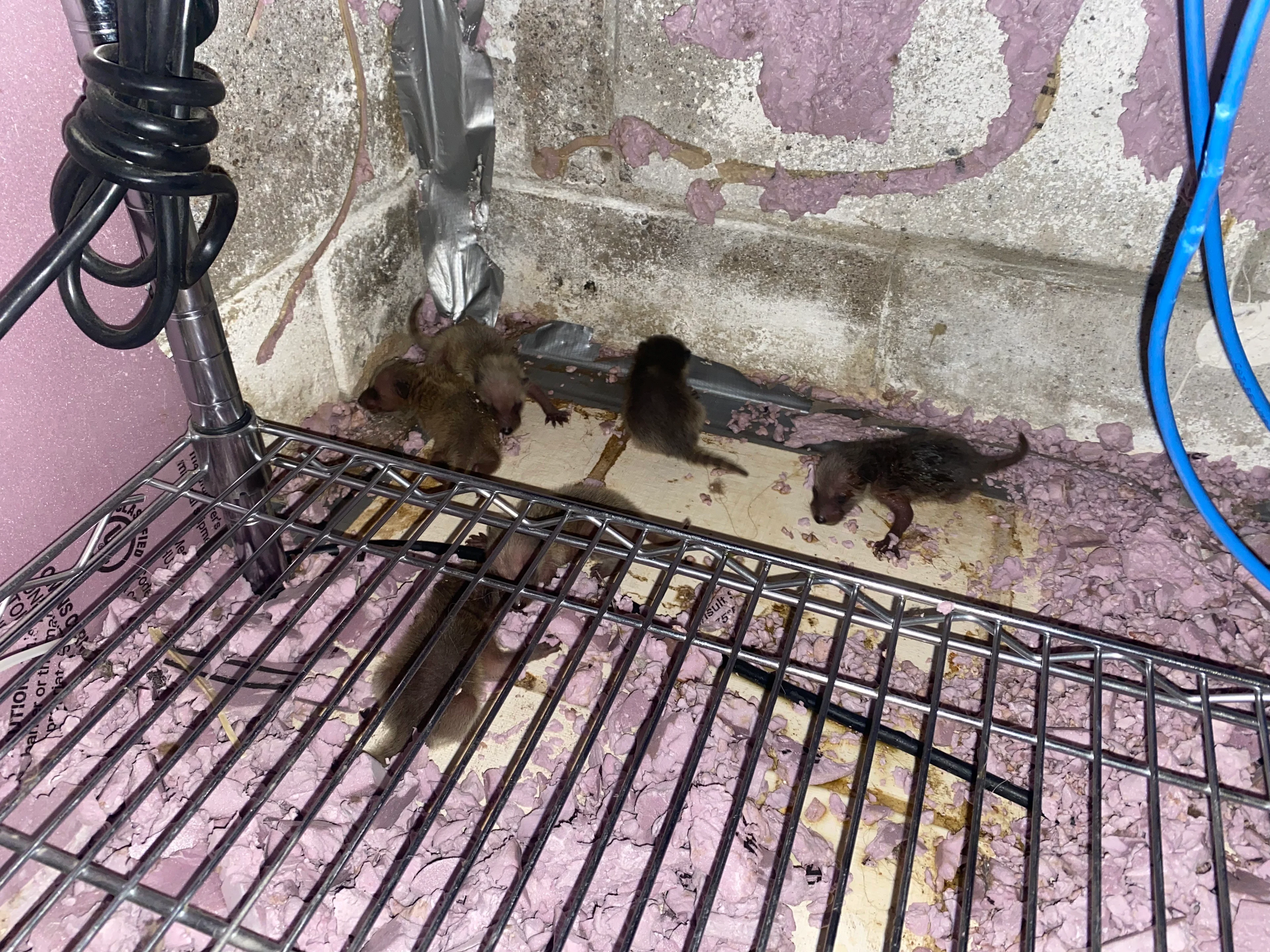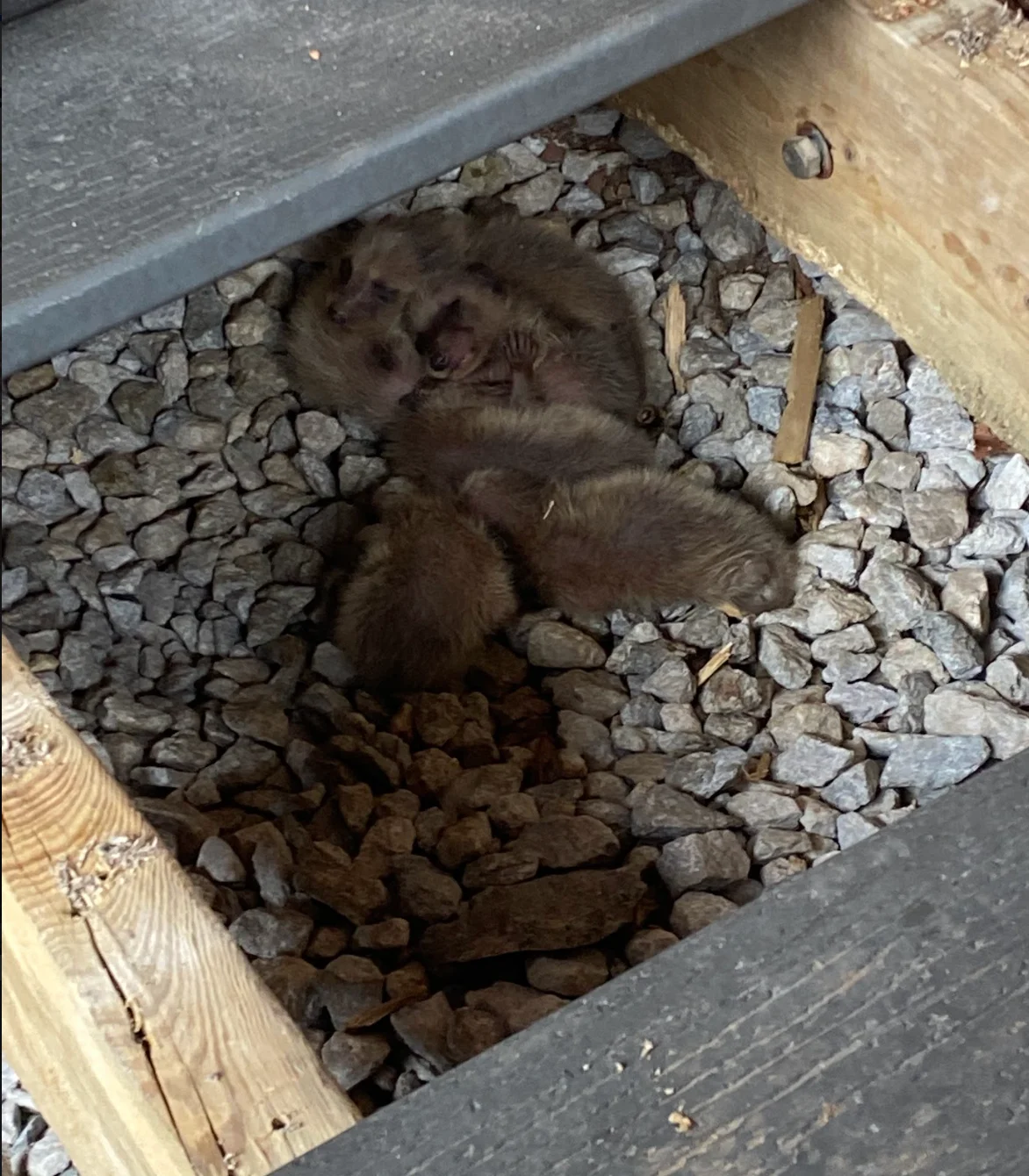
How to keep raccoons from nesting around your house
As we inch closer to the official start of spring, here are some tips you may need to keep raccoons out of your home
With early signs of spring starting to emerge, you may not be the only one confused about the changing seasons.
Toronto's Skedaddle Humane Wildlife Control discovered its first litter of baby raccoons in late February. The company says the six kits were found in a basement cellar in North York after the mother broke through a ground level vent, likely searching for warmth and shelter to birth her litter.

Raccoon litter found in a basement shelter in North York in late February (Skedaddle Humane Wildlife Control)
SEE ALSO: What to do if you find an orphaned animal
The litter was removed by hand and placed into a heated baby reunion box to be reunited with the mother outside the home. The mother then relocated to an alternate den site in the area.
Andrew Wheelock with Skedaddle Toronto says, soffits, roof vents and plumbing vents are all prime entry points for mothers looking for warmth, and a safe place to keep their kits away from predators.
"A raccoon is a very crafty animal. They can get anywhere they want to go," Wheelock says. "The big thing is making sure your house is not vulnerable to get in, and that's what we at Skedaddle Humane Wildlife do, we protect the house against invasion."

Homeowners urged to secure soffits and roof vents to protect against animal invasions. (Skedaddle Humane Wildlife Control)
SPRING 2024: Get an in-depth look at the Spring Forecast, tips to plan for it, and much more!
According to Wheelock, there are simple things you can do to make sure you're not attracting the animal to your home, including removing any sort of food sources nearby, and limiting accessibility into the home.

Baby raccoons are called kits. They are typically born in early spring between March and April (Andrea Bagley/The Weather Network)
DON'T MISS: Earwigs in your home? Here's how to get them out
Other homeowners have used tricks like apple cider vinegar, as the raccoons tend to not like the smell.
It's important to deal with a raccoon invasion quickly because breathing in fumes from raccoon feces, as well as handling the animal yourself, can be dangerous to your health.










